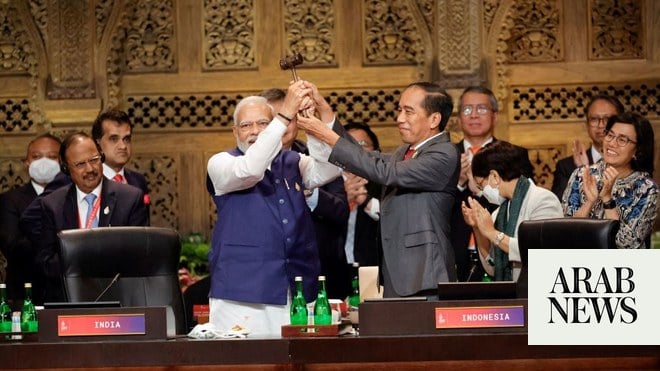
There is no love lost between Ankara and Damascus, and the latter has consistently condemned the presence of Turkish troops in northern Syria. Yet Damascus is likely to be the biggest — perhaps the only — beneficiary of Turkey’s major military operation in northeast Syria, which was launched last week against Kurdish forces.
Massively outgunned compared to the Turkish military and abandoned by their primary ally, the US — which is withdrawing its forces from northern Syria — the Kurds were left with no choice but to forge a deal this week with the Damascus regime. The agreement entails regime protection in exchange for the Kurds handing over control of key cities and towns.
This may provide immediate relief for the Syrian Kurds, but it is no cause for celebration or optimism in the long term. Whether they realize it or not, their deal with Damascus signals the end of their nationalist ambitions, including the autonomy they have enjoyed since 2014. That autonomy was achieved because the regime of President Bashar Assad was stretched too thin trying to quell a popular rising that was gaining momentum.
Damascus has always opposed Kurdish autonomy and self-determination. Having regained control over most of Syria, the Assad regime earlier this year threatened Kurdish forces militarily if they did not agree to return to the state’s authority. The only obstacle, albeit a decisive one, was the presence of US forces in Kurdish-controlled territories.
With American troops withdrawing, the Syrian Kurds have lost their only leverage. And instead of having to wage a major — and potentially costly — military campaign to force the Kurds to accept the state’s authority, the regime is being invited in by them, all thanks to its enemy in Ankara.
The deal entails the regime protecting the Kurds against Turkey’s assault. But in reality the regime will not need to do so because Moscow — which is allied to both Damascus and Ankara, and calls the shots in Syria — will exert its influence to ensure that the Syrian and Turkish militaries do not engage in direct combat. To that end, Russian forces have already started patrolling territory separating the two sides around the flashpoint town of Manbij.
Assad’s military would be no match for Turkey’s, but Moscow and Ankara would strenuously avoid diplomatic tensions or a potential face-off between their forces. As such, from the regime’s viewpoint, the deal it struck with the Kurds is cost-free.
What it will result in is not direct conflict between Damascus and Ankara, but a race for Kurdish-controlled territories, reminiscent of the race between Kurdish forces and the regime to carve up Daesh’s “caliphate.”
But unlike that previous race, where both sides faced resistance from Daesh, Damascus is sure to end up with the lion’s share of northeast Syria because the Kurds will only oppose the Turks, and have been putting up stiff resistance so far. As such, Ankara’s operation will have enabled the Assad regime to retake most of the last major swath of territory outside its authority — the third of Syria under Kurdish control — without a fight.
Turkey has not suggested that its presence in northern Syria will be open-ended. Furthermore, its current operation has received near-universal condemnation regionally and internationally, and the Russian president’s envoy for Syria said on Tuesday: “We are opposed to Turkish troops staying on Syrian territory permanently.” So, regarding the Turkish presence, time is on Assad’s side.
And now that the Syrian Kurds have no leverage, there is no reason for a regime that has historically suppressed them to make any meaningful concessions. Make no mistake: This is not a pact between friends. The regime has repeatedly called the Syrian Kurds traitors for working with the US.
Just last week, Syria’s deputy foreign minister said Kurdish armed groups “had betrayed their country and committed crimes against it,” and “had become hostages to foreign forces.” He added: “There won’t be any foothold for the agents of Washington on Syrian territory.”
On the surface, the deal struck may look like an alliance against a common enemy in Turkey. But in the longer term the common enemy is, and has always been, the Kurds. The regime is entering the fray as their supposed savior, while simultaneously laying the ground for their subjugation. In the words of antagonist Mason Verger in the film “Hannibal:” “When the fox hears the rabbit scream he comes running, but not to help.”
Sharif Nashashibi is an award-winning journalist and commentator on Arab affairs. Twitter: @sharifnash












